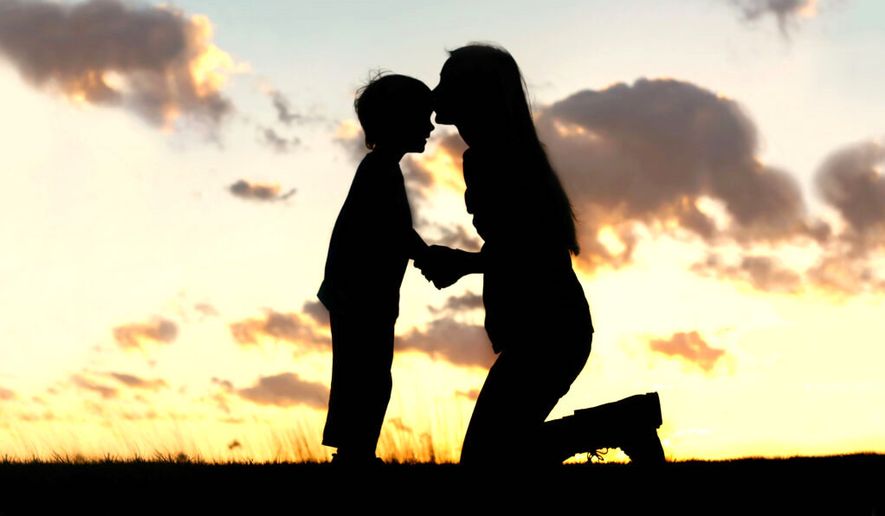OPINION:
Dear Dr. E: I’m a “soccer mom” with two children living in the suburbs of America’s heartland. I’m curious: if you had one word of advice for those of us trying to do our best to raise our kids to become responsible Christian adults rather than fragile snowflakes, what would it be? — MILLENNIAL MOM FROM BRANSON, MISSOURI
Dear Millennial Mom: My answer would simply be this: Stop being helicopter parents! Let your kids experience some pain and learn how to deal with it.
In “The Silver Chair,” the fifth book in the Chronicles of Narnia series, C.S. Lewis writes of the adventures of Scrubb and Jill and their Narnian friend, Puddleglum.
As the story goes, the great lion, Aslan, instructs the two children and their Marshwiggle companion to go into the dark underground world of an evil witch to find and rescue the Narnian Prince Rilian, who has been kidnapped.
Following Aslan’s directions, they find the Prince in a dark cavern, tied to a silver chair with mysterious powers over him. He has been brainwashed to believe the witch is his ally, not his captor, and that the ease of bondage is better than the trials of freedom.
Recognizing the evil spell, the kids and Puddleglum untie the Prince, hoping to escape before the witch returns. But, alas, they are too late.
Standing in the cave, barely lit by smoldering smudge pots, Jill, Scrubb, and Puddleglum are confronted by their evil captor. Rather than immediately succumb, they demand she let them go. They tell her they want to leave the darkness of the cave, return home, “see the sun,” and be with Aslan.
Now, the witch’s response is interesting. She doesn’t use force to keep the Prince and his rescuers enslaved to her lies. Instead, she challenges the very nature of reality. Here’s a sampling of the exchange:
“What is this sun that you all speak of?” [asked the witch] Do you mean anything by the word? Can you tell me what it’s like?”
“Please, your Grace,” said the Prince. “You see that lamp? It is round and yellow and gives light to the whole room, and it hangeth moreover from the roof. Now, that thing which we call the sun is like the lamp, only far greater and brighter. It giveth light to the whole Overworld and hangeth in the sky.”
“Hangeth from what, my lord?” Asked the witch and then, while they were all still thinking how to answer her, she added, with another of her soft, silver laughs, “You see? When you try to think out clearly what this sun must be, you cannot tell me. You can only tell me it is like the lamp. Your sun is a dream; nothing in that dream was not copied from the lamp. The lamp is the real thing; the sun is but a tale and children’s story.”
Doesn’t the witch’s reality-bending argument sound familiar? So many of today’s schools teach the same thing. There are no suns, only lamps. Dreams of “lions” are religion’s wishful hopes of what cats could be. There are no immutable standards - no Narnia, no sky, no sun, no Aslan - All there is to life is to stay in the cave, seek the most pleasure and avoid the most pain.
But there is a way out of this darkness. The solution is to follow Puddleglum. Even after the Prince and the children had given up hope, the Marshwiggle fought back. How? He got as close as possible to something he knew was real—pain.
While the Prince and the two children were standing with their heads hung down and the witch’s enchantment almost complete, Puddleglum, gathering up his strength, walked over to the fire, and with his bare foot, he stamped on it. Lewis describes it this way: “The pain itself made [his] head for a moment perfectly clear… There is nothing like a good shock of pain for dissolving certain kinds of magic.”
The best way to raise your children to become courageous adults is to let them experience failure, let them get hurt, and stop coming to the rescue all the time. Puddleglum broke the witch’s spell by stepping into the pain rather than running from it. Every child needs to learn that some things in life are lies, and some are real, hot, and true. Stepping into the fire might hurt for a while, but “there is nothing like a good shock of pain for dissolving certain kinds of magic.”
Parents who constantly rescue their sons and daughters from the hard realities of life do their kids no favors. While keeping your children in a protective cave may seem safer, remember there is “nothing like a good shock of pain for dissolving certain kinds of magic” the world throws their way. Reality may hurt a bit, but where there is no pain, there is no gain.
If you are seeking guidance in today’s changing world, Higher Ground is there for you. Everett Piper, a Ph.D. and a former university president and radio host, takes your questions in his weekly ’Ask Dr. E’ column. If you have moral or ethical questions for which you’d like an answer, please email askeverett@washingtontimes.com and he may include it in a future column.




Please read our comment policy before commenting.